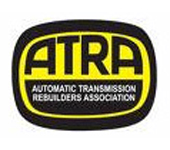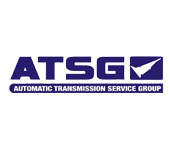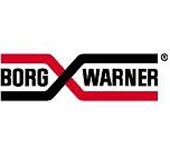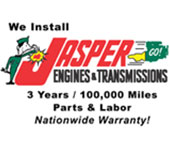817-446-7295 or 682-321-7117 | 2921 S Cooper St #101 Arlington, TX 76015
AUTONET TV
Archive for March 2025The Turn Signal Mystery (Turn Signal Problems)Posted March 30, 2025 3:33 AMSome problems are easy to diagnose on a vehicle; others aren't. Figuring out what's wrong with a malfunctioning turn signal sometimes fits into both categories. By the way, if your tempted to just leave your broken blinker broken, remember you can get a ticket for not using them, not to mention you are missing a great chance to communicate your intentions to other drivers on the road. There can be lots of signals that your signals are on the blink. Does only the driver's side signal not work or the passenger's side? Do your hazard signals work? Do the lights illuminate but not flash? Can you see the indicators on the dash blinking? Do your turn signals turn off after you've finished your turn or do they stay on? These are all great clues for the technician. Here's one common symptom to take note of. Your signal all of a sudden starts blinking much more quickly than it used to. It could be a simple as a burned out bulb. But there are many different parts that go into the turn signal system. There are fuses that blow, switches that can fail, flasher modules that go bad and light bulb sockets that can simply get corroded or dirty. When that happens, it's possible there's no contact between the bulb and the socket. So it's understandable how tracking down the source of the problem can involve some detective work. Your service facility has equipment that can nail down the cause of your problems. They may also consult the repair manual. One thing to be aware of: if your vehicle has airbags, they may have to be disabled so they don't accidentally go off. You can make sure your turn signals are working correctly by having them checked by a trained technician. Other drivers will thank you for showing them the courtesy of signaling your intentions. It's a courteous and considerate thing to do, not to mention it makes the road a safer place. Westmoreland Transmissions Losing Your Spark (Spark Plug Replacement)Posted March 23, 2025 3:25 AMWhen's the last time you thought about spark plugs? You probably don't remember. That's because spark plugs usually last a long time and don't need much attention. But they don't last forever, and when they start going bad, they'll send you a few clues.
There are many things that can cause those symptoms, so it's wise to head on over to your vehicle repair facility to have them look over your vehicle. But the problem could be your spark plugs. They do wear out, not producing a strong enough spark to ignite your fuel the way they're designed to. A closely related problem is failing spark plug wires, and a technician will test for both possibilities… and more. Your vehicle's manufacturer recommends changing wires and/or plugs at certain intervals. Spark plugs are made out of different materials and some last far longer than others. Ask your service advisor to let you know when yours should be changed. Badly misfiring plugs can cause expensive damage to a vehicle's catalytic converter, so it's best to take care of them before that happens. Replacing your spark plugs and/or wires is money well spent to have your vehicle running smoothly, dependably and efficiently. Westmoreland Transmissions Bump in the Road (Alignment)Posted March 16, 2025 3:25 AMThere's something you can do that helps your tires last longer, wear more evenly and your vehicle handle better. "Sign me up," you say! Wondering what that is? It's aligning your wheels, and it will literally point you in the right direction when it comes to a better and safer driving experience. When your vehicle was designed, the engineers made sure your tires were all pointing the same way by designing the suspension to make optimal contact with the road. That way the ride is smooth, you don't feel vibrations or shimmying and your vehicle travels in a straight line, without pulling to one side or the other. Unfortunately, your vehicle is not brand new; time and distance take their toll. After hitting countless bumps, potholes, or the occasional curb, your suspension gets knocked a little out of kilter. Those precise angles the engineers planned on for your vehicle? They get out of whack Uneven or premature tire wear is one of the first signs your alignment may be off. If you are driving straight and your steering wheel isn't pointing straight, that's another indication alignment might need checking. Tire squealing can also be a clue. When you bring your vehicle in for an alignment, we use equipment designed to measure the tilts and angles of your suspension's parts. The technician will also check to see if any of the vehicle's suspension components are worn or broken. We will also check your steering angle sensor to make sure it's set properly. The process is different for vehicles that are front-wheel drive, rear-wheel drive, all-wheel drive, or 4-wheel drive. After your alignment, your tires should wear more evenly, your steering should be straight and your wheels vibration-free. If it's been a while since you've had your vehicle aligned, bring it in and we'll check it. Usually, your alignment will be a little off after one or two years of driving, and it's wise to follow your vehicle manufacturer's recommendation for how often your model should be checked. Westmoreland Transmissions It's Brake Time (Brake Calipers)Posted March 9, 2025 3:12 AMRace car drivers have demonstrated the advantages of disc brakes, so most modern vehicles use them. Sometimes just the front wheels have disc brakes, but many vehicles now have them all the way around. A major component of the disc brake is called a caliper. It works by squeezing brake pads against the disc or rotor, kind of like a bicycle hand brake. The brake pads themselves are what contact the rotor, causing friction to build and the wheel to slow down, but it's the calipers that apply the pressure to the pads. Caliper design has evolved over the years, and there are two common types. One is called a floating caliper. It has one or two pistons on one side of the disc. When you push down the brake pedal, the piston or pistons in your caliper put pressure on that one side. A mechanism connected on the other side of the disc applies pressure as well, squeezing your disc so the vehicle stops. Floating calipers are less expensive since they have fewer parts. The other type is called a fixed caliper. They use pistons on both sides of the disc, sometimes several. They are often used in more high-performance or heavy-duty vehicles. Calipers can have rubber seals to keep out dirt, debris and moisture, but when that rubber wears out, sometimes the calipers can get contaminated. They can stick or start leaking; they can even rust. Then your caliper can get stuck applying that "squeeze" when you are not pressing on the brake pedal. Or they can get stuck in the other position, not applying stopping power when you press the pedal. When this happens, it's not unusual to feel your vehicle pull to one side when you brake. You might notice a burning smell from the constant friction if the caliper is stuck on, plus you may feel the heat from the wheel after you park and get out of your vehicle. Sometimes you'll hear a high-pitched sound or clunk if your calipers are binding up. That's your cue to have them checked out at your vehicle service center. If your calipers aren't working correctly, it can be a safety hazard. Sticking calipers can affect your ability to steer and stop; this is the kind of "brake time" you need so you can get them back on track and working properly. Westmoreland Transmissions Your Biggest Fan (Radiator Fan Problems)Posted March 2, 2025 3:09 AMYour vehicle's engine makes a lot of heat when it's powering you down the road, so it needs a way to get rid of that energy. That's why your vehicle has a cooling system, complete with a radiator and one or two radiator fans, also called cooling fans. Those fans make sure air keeps moving across the radiator so that the heat stored in the coolant can be dissipated outside when the vehicle is stopped or not traveling fast. Radiator fans can develop problems and can stop working properly or stop working altogether. Some signs to look for? If you're driving slowly and idling and you see your temperature gauge moving toward the red or hot zone, that could spell trouble. Another thing you may notice when a radiator fan is failing is that there may be a loud noise coming from the engine compartment. There are two types of radiator fans. One is mechanically connected to the engine and uses the engine's rotational energy to turn it. The other is an electric fan and is the type used in most newer vehicles. In the electrical type, one of the components, such as a relay or fuse, may fail, causing the fan to stop turning. In the mechanical type, since it's driven by a pulley/belt mechanism, one of those components may break or stop working properly. A clutch can wear out or a belt may slip or break. When your cooling fan isn't working properly, it may cause your engine to overheat which could lead to expensive damage. That's why it's important to make sure you visit your service facility if you notice any of these symptoms. A technician is trained to diagnose the problem and make sure your radiator fan is doing its job. When it comes to your vehicle, your radiator fan really is your biggest fan. Westmoreland Transmissions | ||
SearchArchiveApril 2018 (16)May 2018 (5) June 2018 (4) July 2018 (5) August 2018 (4) September 2018 (5) October 2018 (4) November 2018 (4) December 2018 (5) January 2019 (5) February 2019 (4) March 2019 (5) April 2019 (4) May 2019 (4) June 2019 (5) July 2019 (4) August 2019 (4) September 2019 (5) October 2019 (4) November 2019 (4) December 2019 (5) January 2020 (5) February 2020 (4) March 2020 (5) April 2020 (4) May 2020 (5) June 2020 (4) July 2020 (4) August 2020 (5) September 2020 (4) October 2020 (4) November 2020 (5) December 2020 (4) January 2021 (6) February 2021 (4) March 2021 (4) April 2021 (4) May 2021 (5) June 2021 (4) July 2021 (4) August 2021 (5) September 2021 (4) October 2021 (5) November 2021 (4) December 2021 (4) January 2022 (6) February 2022 (4) March 2022 (4) April 2022 (4) May 2022 (5) June 2022 (4) July 2022 (5) August 2022 (4) September 2022 (4) October 2022 (5) November 2022 (4) December 2022 (4) January 2023 (5) February 2023 (4) March 2023 (4) April 2023 (5) May 2023 (4) June 2023 (4) July 2023 (5) August 2023 (4) September 2023 (4) October 2023 (5) November 2023 (4) December 2023 (4) January 2024 (5) February 2024 (4) March 2024 (5) April 2024 (4) May 2024 (4) June 2024 (5) July 2024 (4) August 2024 (4) September 2024 (5) October 2024 (4) November 2024 (4) December 2024 (5) January 2025 (4) February 2025 (4) March 2025 (5) April 2025 (3) | CategoriesWhat Customers Should Know (43)Steering (7)Maintenance (8)Fuel Economy (4)Keys to a long lasting vehicle (2)Check Engine Light (2)Air Conditioning (8)Battery (8)Auto Safety (4)Tires and Wheels (2)Transmission (3)Alternator (2)Fuel Saving Tip: Slow Down (2)Shocks & Struts (3)Fluids (2)Automotive News (1)Winter Prep (2)Brakes (10)Older Vehicles (1)Cooling System (4)Service Intervals (1)Drive Train (2)Oil Change (5)Service Standards (1)Windshield Wipers (2)Headlamps (2)Winter Tires (1)Exhaust (5)Customer Detective Work (1)Fuel System (1)Tires (7)Alignment (3)Tire Rotation and Balancing (2)Transfer Case Service (1)Suspension (1)Safety (2)TPMS (1)Inspection (2)Timing Belt (2)Shocks and Struts (1)Brake Service (1)Spark Plugs (1) | |
Testimonials
Jacob Ouellette, 04/04/2025
Brought my 2004 Dodge Ram 3500 to them after having a horrible experience at a different shop. The professionalism and quality of work the two techs do is VERY hard to find nowadays at other shops. They replaced my rear main and release bearing in just a few hours. They keep their shop very clean, cleaner than most shops I have been to. The owners are some of the kindest and caring people we have met in the area. They go above and beyond to make sure their customers are taken care of and happy. I haven't had an experience this great at a shop in a long time if not ever. This is the only shop I'll bring my vehicles to in the future. Bob (the owner) is very honest and fair to his customers.














